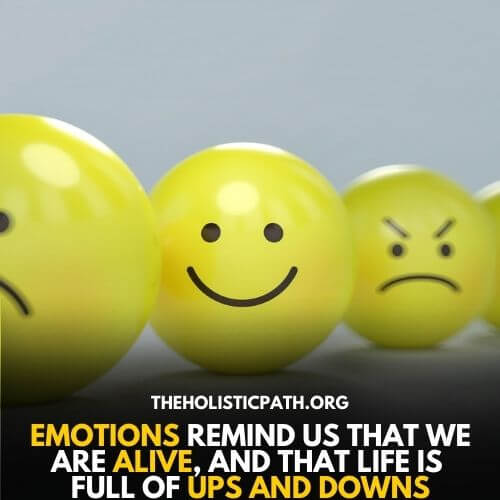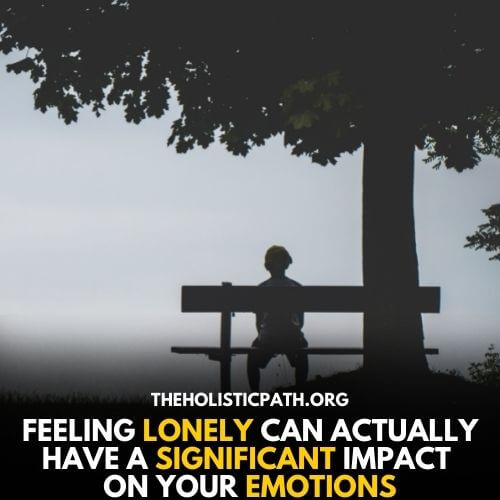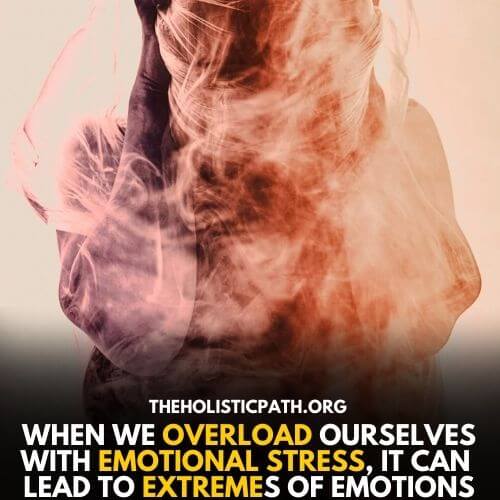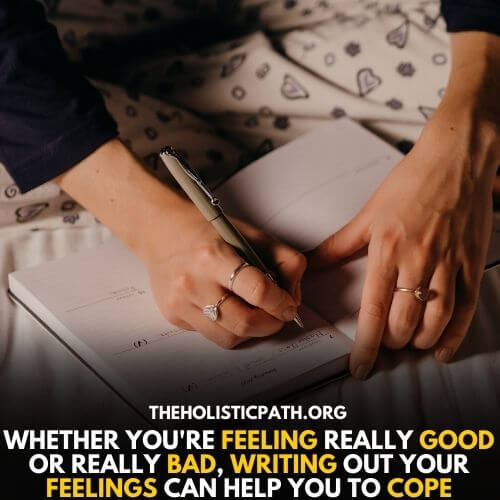Extreme emotions! We all feel them from time to time. Anger, sadness, fear, joy, love. They can be intense and overwhelming, but they are also a part of what makes us human. Extreme emotions can help us to achieve great things or they can lead us down a destructive path.
But whatever their impact, extreme emotions are powerful and compelling forces that we cannot ignore. In this article, we will explore extremes of emotions and their role in our lives.
Understanding Extreme Emotions
Extreme emotions are those that are intense and extreme. They can be either positive or negative. Extreme emotions can be caused by something external, such as a situation or event, or they can be caused by something internal, such as our thoughts or feelings.

External extreme emotions might include feeling ecstatic after winning the lottery, or feeling horrified after witnessing a car accident. Internal extreme emotions might include feeling elated after getting a promotion or feeling down after receiving some bad news. Whatever the cause, extreme emotions can have a profound effect on our lives.
They can make us feel highs that we never knew were possible or lows that we never thought we would recover from. They can push us to our limits and test our strength and resilience.
In some cases, extreme emotions may be the result of an underlying mental health condition such as anxiety or depression. Regardless of their cause, extreme emotions can be very overwhelming and may lead to difficulty functioning in day-to-day life.
What Is A Word For Extreme Emotion?
An “aporia” is a word for extreme emotion. It is often used to describe the feeling of being at a loss, or being unable to find an answer. The word is derived from the Greek “aporia,” which means “confusion.”
Aporia can be used to describe a range of emotions, from frustration and confusion to sadness and despair. It is often used in situations where someone is struggling to cope with a difficult situation. For example, a person might feel an aporia after losing a loved one, or after experiencing a major life change. In these cases, the feeling of extreme emotion can be overwhelming and paralyzing.
However, it is important to remember that aporia is only temporary. With time and support, people can learn to cope with their emotions and move on with their lives.
Why People Feel Extremes Of Emotions
People feel extremes of emotions for a variety of reasons. Sometimes it’s because they’re dealing with a major life event, like the death of a loved one. Other times, it may be due to chemical imbalances in the brain. Whatever the cause, extremes of emotion can be very difficult to deal with.
Here are some reasons why people may feel extremes of emotion:
- They’re going through a major life event: This could be something like the death of a loved one, getting laid off from work, or going through a divorce. Major life events can be very stressful, and it’s natural to feel a wide range of emotions in response to them.
- They have a chemical imbalance: Chemical imbalances in the brain can cause people to feel extremes of emotion. For example, someone with bipolar disorder may experience periods of intense sadness or happiness.
- They’re experiencing anxiety or depression: Anxiety and depression are both mental health disorders that can cause people to feel extreme emotions. Depression, in particular, is often characterized by periods of feelings of hopelessness and despair.
Extreme Emotions Disorder
What is an extreme emotion disorder? While the term may conjure up images of someone who is constantly angry or sad, extreme emotion disorders actually refer to a group of conditions that are characterized by difficulty regulating emotions. This can include feeling very intense emotions, being easily overwhelmed by emotions, or having difficulty recovery from emotional traumas.
There are a few different types of extreme emotion disorders that are generally recognized.
One is called borderline personality disorder, which is characterized by impulsivity, intense emotions, and instability in relationships. Another is called post-traumatic stress disorder, which can develop after exposure to a traumatic event and is characterized by flashbacks, avoidance of triggers, and hypervigilance. Finally, there is bipolar disorder, which is characterized by drastic mood swings between periods of mania and depression.
While the symptoms of extreme emotion disorders can vary, they all share one common feature: they make it difficult to manage everyday life. If you have an extreme emotion disorder, you may find it hard to maintain healthy relationships, hold down a job, or even take care of yourself. However, there is hope: with treatment, many people with extreme emotion disorders are able to live happy and successful lives.
12 Reasons & Causes For Feeling Extremes of Emotions
Extremes of emotions can have many causes. Here are 10 possible reasons why you might be feeling extremes of emotions:
1. Having A Traumatic Experience
It’s not unusual to feel extremes of emotions after a traumatic experience. You may feel scared, confused, and alone. You may also feel guilty, ashamed, or angry. All of these emotions are perfectly normal.
PTSD (post-traumatic stress disorder) is a real condition that can develop after a traumatic event. Some people with PTSD have flashbacks of the event. Others have nightmares or trouble sleeping.
2. Experiencing Physical Pain
When you experience physical pain, it can trigger all sorts of emotions. You might feel anger, frustration, sadness, or even fear. The intensity of these emotions can vary depending on the intensity of the pain.
For example, if you’re in intense pain, you might feel pure anger or rage.
Or if the pain is more moderate, you might just feel irritable and grumpy. However, no matter how intense the emotions are, they can all be normal reactions to physical pain.
3. Witnessing Or Being Involved In A Violent Event
It’s natural to feel scared, confused, and even angry after seeing or experiencing violence. You might feel like you’re in shock, or like this couldn’t have really happened. It’s also common to feel guilty or ashamed, especially if you weren’t able to do anything to stop the violence.
All of these feelings are normal. Trying to bottle them up can make them even worse, so it’s important to find an outlet for them.
4. Feeling Socially Isolated Or Alone
It’s pretty common to feel lonely or socially isolated at one point or another. After all, humans are social creatures and we generally do better when we’re around others. But what you might not realize is that feeling lonely can actually have a significant impact on your emotions.
When you’re feeling isolated, you’re more likely to experience extremes of emotions, both positive and negative.

You might find yourself getting more angry or defensive than usual, or you might find yourself crying more often. On the other hand, you might also find yourself feeling incredibly happy and content in your own company.
5. Suffering From A Mental Illness
When you suffer from a mental illness, it can feel like you’re on an emotional rollercoaster. You may swing from feeling really happy to feeling really down, or from feeling really energized to feeling completely exhausted.
It can be hard to keep up with the changes, and sometimes it can feel like you’re not in control of your own emotions. Here are some examples:
- Borderline Personality Disorder: People with this disorder often have intense and unstable relationships, mood swings, and a fear of abandonment. They may impulsively self-harm or engage in risky behaviors.
- Schizophrenia: This mental illness can cause delusions, hallucinations, and disorganized thinking. People with schizophrenia may also seem flat or emotionless.
- Bipolar Disorder: This condition is characterized by extreme highs (mania) and lows (depression). During a manic episode, a person may be overly happy, energetic, and impulsive. During a depressive episode, a person may feel hopeless and worthless.
6. Going Through Puberty Or Menopause
Going through puberty or menopause can make you feel extremes of emotions. It’s normal to feel moody, irritable, or even depressed during these times. For one thing, the hormonal changes that occur during puberty and menopause can cause mood swings and energy levels.
In addition, the physical changes that take place during these life stages can be hard to adjust to. For example, you may feel self-conscious about your changing body. You may also have trouble sleeping, which can make you feel tired and cranky.
7. Being Confronted With A Situation That Is Completely New Or Overwhelming
Being confronted with a situation that is completely new or overwhelming can be a very emotional experience. You may feel a wide range of emotions, from fear and anxiety to excitement and joy. This is perfectly normal.
Your brain is trying to process all the new information and figure out how to respond. This can be a lot to take in, so it’s no wonder you might feel overwhelmed.
8. Feeling Like You’re Not In Control Of Your Life Or Destiny
When you feel like you’re not in control of your life or destiny, it can be extremely frustrating. It can be really tough, you might feel like you’re just a puppet on a string, being pulled along by forces beyond your control.
You may feel like you’re constantly being buffeted by forces outside of your control, and that can lead to a feeling of hopelessness, total helplessness, to feeling enraged at the world. Over time, this can lead to extremes of emotions, from despair to anger.
And if you’re not careful, it can be all too easy to become consumed by these emotions and lose sight of what’s important in your life.
9. Receiving Criticism Or Negative Feedback From Others
Receiving criticism or negative feedback from others can trigger extremes of emotions. You might feel defensive, angry, sad, or even humiliated. It’s important to remember that everyone receives criticism at some point in their lives – it’s nothing to be ashamed of.
What matters is how you handle it.
If you’re able to take the criticism in stride and use it as motivation to improve, then it can actually be a positive experience. On the other hand, if you let the criticism get to you and begin to doubt yourself, then it can have a negative impact on your self-confidence and self-esteem.
10. Suffering From A Chronic Illness Such As Cancer, Fibromyalgia, etc
It’s no secret that suffering from a chronic illness can take a toll on your emotional well-being. The physical pain and fatigue can be all-consuming, and it can be hard to remain positive when you’re facing such difficult challenges.
Here are some of the extremes of emotions that you may experience:
- Extreme sadness: Chronic illness can be very isolating and lonely. You may feel like you’re the only one going through this, and it’s easy to become overwhelmed by sadness.
- Extreme anger: It’s common to feel angry when you’re dealing with a chronic illness. You may be angry at the disease itself, or at the way, it’s impacting your life. You may also feel angry at the people around you who don’t understand what you’re going through.
- Extreme anxiety: Anxiety is a common emotion for people with chronic illnesses. The constant worry about your health and the uncertainty of the future can be very frightening.
- Extreme guilt: Guilt is often another extreme emotion that people with chronic illness experience. You may feel guilty about the way your illness is impacting your loved ones, or guilty about not being able to do the things you used to do.
- Extreme exhaustion: Dealing with a chronic illness can be extremely draining, both physically and emotionally. The fatigue can make it hard to function normally, and it’s easy to become completely exhausted.
11. Experiencing Lifestyle Stress
Lifestyle stress can take a toll on our emotional well-being. We may find ourselves feeling extremes of emotions that we never experienced before. This can be due to the immense amount of pressure we put on ourselves to juggle work, family, and social obligations.
We may feel like we’re constantly running on empty and that can lead to feelings of irritability, anxiety, and depression. This is because stress can cause your body to produce high levels of the stress hormone cortisol.
Cortisol can have a big impact on your mood, and can even cause you to feel extremes of emotions.
12. Overload Of Emotions
Too much of anything can be a bad thing, and that includes emotions. When we overload ourselves with emotional stress, it can lead to extremes of emotions.

We might find ourselves feeling incredibly happy one minute and then extremely sad the next. Our thoughts might race, and we might have difficulty concentrating. We might also find it hard to control our impulses, leading to impulsive behaviors.
In severe cases, emotional overload can lead to a breakdown or even a psychotic episode.
Intense Feelings/Emotions Examples
There are a lot of intense emotions that people experience on a daily basis. Here are just a few examples:
- Love: Love is probably the most intense emotion that humans feel. It can be all-consuming, and it can cause people to do things that they never thought possible.
- Anger: Anger is another powerful emotion. When people are angry, they can sometimes lose control of themselves and lash out in aggressive ways.
- Fear: Fear is an intense emotion that can cause people to feel paralyzed with terror. In some cases, it can even lead to mental health issues like anxiety and depression.
- Grief: Grief is a very painful emotion that people experience when they lose someone they care about. It can be overwhelming and debilitating, and it can take a long time to heal from.
Coping With Extremes Of Emotions: 10 Formidable Ways
Extremes of emotions can be tough to cope with. You may feel like you’re on an emotional roller coaster, and it can be hard to keep up. Here are 10 ways to help you cope with extremes of emotions:
1. Take A Deep Breath:
When we feel extremes of emotions, it can be helpful to take a deep breath. This helps to Oxygenate our blood and calm our nervous system. It also helps to bring us back to the present moment and connect us with our physical body.
Taking a deep breath is a simple yet effective way to cope with difficult emotions. It allows us to pause and take stock of our situation, rather than reacting impulsively. By focusing on our breathing, we can also help to ground ourselves and bring some calm into the midst of chaos.
The next time you’re feeling overwhelmed, try taking a few deep breaths and see how it makes you feel.
2. Be Mindful Of Your Triggers
Mindfulness is all about being present in the moment and observing your thoughts and feelings without judgment. When you’re mindful, you’re able to step back from your emotions and see them for what they really are.
This can be extremely helpful when you’re dealing with extremes of emotions, as it allows you to gain some perspective and better understand your triggers. If you can become aware of your triggers, then you can start to work on managing them in a more effective way.
For example, if you know that you tend to become very angry when you’re feeling stressed, then you can start to look for ways to reduce your stress levels. This might involve things like learning how to meditate or taking up yoga.
By becoming more mindful of your emotions, you’ll be better equipped to deal with them in a healthy and productive way.
3. Remove Yourself From The Situation:
We’ve all been there before – feeling so overwhelmed with emotion that we don’t know what to do or where to turn. When we’re in the midst of an emotional storm, it can be difficult to see clearly. However, one of the best things you can do in this situation is to remove yourself from the situation that is causing the emotional overwhelm.
Even if it’s just for a short time, getting some distance can help you to gain some perspective.
Once you’ve had a chance to calm down and clear your head, you’ll be better equipped to deal with the extremes of emotion you’re experiencing. Additionally, removing yourself from the situation can help to protect you from further emotional damage.
If the situation is too difficult or painful to deal with, it’s best to walk away until you’re in a better place emotionally. Taking care of yourself is always the priority when extremes of emotion are involved.
4. Write Out Your Feelings:
When you’re feeling really happy, writing can help you to savor the moment and remember it for longer. Similarly, when you’re feeling down, getting your thoughts and feelings down on paper can help you to process them and start to feel better.
In both cases, writing gives you a chance to step back from your emotions and see them from a different perspective.
Of course, extremes of emotion are often the most difficult to deal with. When you’re feeling overwhelmed, it can be hard to even know where to start. But even just organizing your thoughts into sentences can help to give you a sense of control and make the situation seem more manageable.
And once you’ve written everything down, you might find that there are some things you can do to make the situation better. Whether you’re feeling really good or really bad, writing out your feelings can help you to cope.

5. Talk To Someone:
Extremes of emotions can be difficult to deal with. Talking to someone can help you cope with them in a few ways. First, it can help you understand your emotions better. Second, it can help you find new and healthier ways to express yourself.
Third, it provides support and validation from another person. extremes of emotions can often make us feel isolated and alone, but talking to someone reminds us that we are not alone in our experiences. This can provide relief from the intensity of our emotions and help us to feel more connected to others.
Finally, talking to someone can help us to develop new coping strategies for dealing with extremes of emotions in the future.
6. Exercise:
We all know that exercise is good for our physical health, but it can also have a profound effect on our mental and emotional well-being. When we exercise, our body releases endorphins, which have mood-boosting properties.
In addition, exercise can help to reduce stress levels and improve sleep quality. For people who struggle with extremes of emotions, these benefits can be especially valuable. Exercise can help to stabilize mood swings and provide a sense of grounding during periods of high stress.
It can also help to improve coping skills and promote healthy self-care habits. If you’re looking for a way to manage extremes of emotions, start making exercise a part of your routine.
7. Relax:
Relaxing and using relaxation techniques can help you cope with extremes of emotions by providing a way to release the built-up tension that can cause these extremes. When you relax, your body releases hormones that promote feelings of calm and well-being.
In addition, relaxing can help to clear your mind and allow you to think more clearly. As a result, you may be better able to cope with difficult situations and make better decisions. There are a variety of ways to relax, including yoga, meditation, and deep breathing exercises.
Experiment with different techniques to find what works best for you. By taking a few moments to relax each day, you can help to reduce the amount of stress in your life and improve your overall emotional health.
8. Take A Break:
We all have extremes of emotions from time to time – sadness, anger, happiness, and fear. They’re a normal part of life. But sometimes these emotions can become too much to handle. That’s when it’s helpful to take a break.
Just a few minutes to yourself can make a big difference. Here’s how taking a break can help you cope with extremes of emotions:
- It gives you time to calm down and think clearly.
- It allows you to take some deep breaths and relax your body.
- It gives you a chance to step away from the situation and perspective.
- It allows you to put things into perspective and see that the emotion is temporary.
- It allows you to come up with a plan to deal with the emotion in a healthy way.
If you’re feeling overwhelmed by extreme emotion, don’t be afraid to step away for a few minutes. It can make all the difference in the world.
9. Reflect On Why You Are Feeling This Way:
When we’re feeling extremes of emotions, it can be tough to cope. We might feel like we’re out of control, or like the world is crashing down around us. But one way to help ourselves is to take a step back and reflect on why we’re feeling this way.
What’s causing us to feel so emotional? Is it something that’s happened recently, or is it something that’s been building up over time? Once we know the reason behind our emotions, we can start to work on coping with them.
We might need to make some changes in our lives or seek professional help, but taking that first step can really make a difference.
10. Practice Emotional Regulation
Emotional regulation is all about learning how to manage our emotions in a healthy way. It involves understanding what triggers our emotions and then finding healthy ways to deal with them. For example, let’s say you tend to get really angry when you’re stuck in traffic.
You might try using some deep breathing exercises to help you stay calm at the moment, or you might plan your route so that you avoid times when traffic is likely to be heavy.
Practicing emotional regulation can take some time and effort, but it’s worth it. When we’re able to manage our emotions in a healthy way, we’re less likely to let them spiral out of control. We’re also more likely to be able to cope with stress and setbacks, and we may even find that we enjoy life more overall.
So if you’re struggling to deal with extremes of emotion, give emotional regulation a try – it just might help you turn things around.
Takeaway
So extremes of emotions can lead to bad decision making which can then lead to negative consequences. It’s important to be aware of your emotional state and try to stay in control, especially during high-stress situations.
Learning how to manage your emotions can help you make better decisions, avoid negative consequences, and live a happier life.
References
Izard, C. E. (2009). Emotion Theory and Research: Highlights, Unanswered Questions, and Emerging Issues. Annual Review of Psychology, 60(1), 1–25. https://doi.org/10.1146/annurev.psych.60.110707.163539
Tyng, C. M. (2017). The Influences of Emotion on Learning and Memory. Frontiers. https://www.frontiersin.org/articles/10.3389/fpsyg.2017.01454/full
